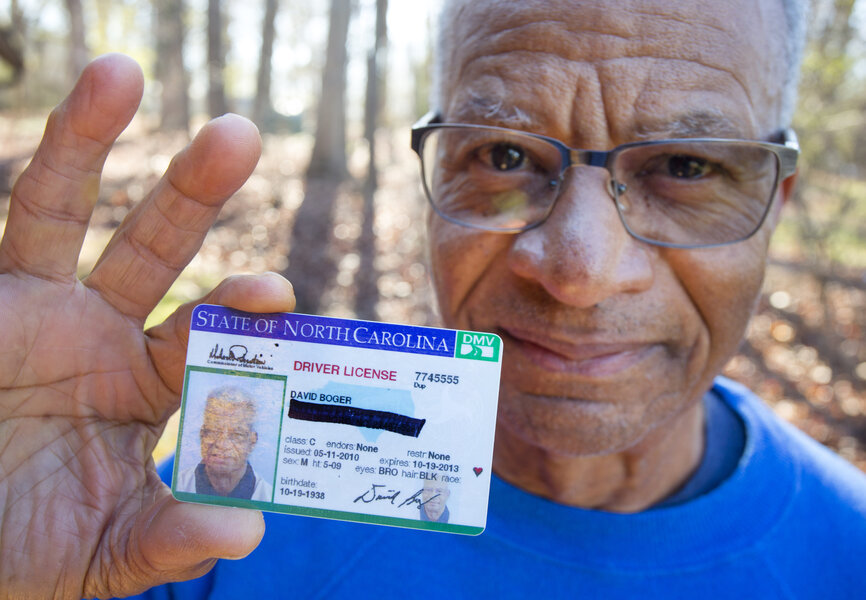N.C. voter ID law does not violate minority rights, federal judge finds
Loading...
Efforts to reverse a controversial voter identification law hit a roadblock in North Carolina on Monday.
The US Justice Department's lawsuit challenging North Carolina's voter ID requirement was dismissed by US District Judge Thomas Schroeder. The Justice Department had alleged that the requirement disproportionately affected poor and minority voters in the state and violated federal law.
North Carolina has a history of impeding the voting rights of black Americans, but there was little evidence to suggest the voter ID requirement substantially impacted the ability of minorities to vote in the state, Judge Schroeder said in his decision to dismiss the case.
The plaintiffs "failed to show that such disparities will have materially adverse effects on the ability of minority voters to cast a ballot and effectively exercise the electoral franchise" as a result of the 2013 voter ID state law, Schroeder wrote. The judge also cited findings that black voter turnout rose in 2014, after the law was passed.
"There is significant, shameful past discrimination. In North Carolina's recent history, however, certainly for the last quarter century, there is little official discrimination to consider," Schroeder wrote.
Though highly contested, voter ID requirements are not uncommon. Currently 33 US states enforce identification rules before allowing citizens to vote in person and that number is continuing to rise. For instance, West Virginia will require an ID to vote by 2018, according to the National Conference of State Legislatures.
Democrats have long resisted efforts to implement similar identification requirements, as most allege they mostly impact traditional Democratic voting blocs, namely poor, minorities, and students. Preliminary data taken from 16 states that are enforcing ID requirements for the first time this year shows that Democratic voter turnout in primaries has been 285 percent worse.
In North Carolina, about 218,000 registered voters do not have a government-issued photo ID that is now part of the requirement to vote.
Beyond the ID requirement, the recent law in North Carolina also eliminated same-day voter registration and requires all voters to vote within their precincts. The window for early voting was also shortened, while the operation hours of early voting places remained the same.
Voter fraud was a main focus during the court case over the new law. Advocates felt strongly that requiring voter identification would make voting more secure and less vulnerable to fraud, despite the fact that evidence suggests such fraud is extremely low.
"Common practices like boarding an airplane and purchasing Sudafed require photo ID and thankfully a federal court has ensured our citizens will have the same protection for their basic right to vote," North Carolina Gov. Pat McCrory (R), said in a statement.
But advocates of reversing the requirements maintain that the North Carolina court case is just the start.
"This is just one step in a legal battle that is going to continue in the courts," said Penda Hair, an attorney representing the NAACP, told the Associated Press.
This report includes material from The Associated Press.








